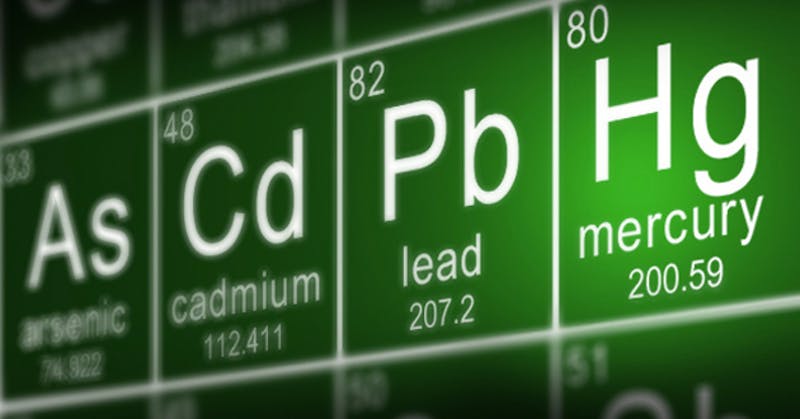EN 14902 Airborne Toxic Element Monitoring in Food Processing Areas
The European standard EN 14902:2013 specifies the methods for determining airborne toxic elements (ATEs) in food processing areas. This is critical to ensure that the air within these facilities meets stringent safety and quality standards, which are essential for both consumer health protection and compliance with international regulations.
The standard covers the determination of ATEs such as lead, cadmium, mercury, arsenic, nickel, chromium, and other elements that may pose a risk to human health when inhaled. Food processing areas, especially those involving raw materials like grains, meat, dairy products, or vegetables, can accumulate these elements through various processes.
The testing is particularly important for facilities handling raw agricultural commodities where contamination from the environment or during storage and transportation could lead to airborne pollutants being present in significant concentrations. Compliance with this standard helps prevent adverse health impacts on workers and minimizes risks of product contamination affecting public health.
Our laboratory adheres strictly to EN 14902 guidelines, ensuring accurate and reliable results that are accepted by regulatory bodies worldwide. Our team consists of experts equipped with state-of-the-art equipment designed specifically for this type of analysis. The precision and reproducibility achieved through our methods guarantee consistent quality assurance across all samples tested.
By choosing our EN 14902 testing service, you can rest assured that your facility is meeting the highest industry standards. Our comprehensive approach ensures not only compliance but also enhanced operational safety for both employees and consumers. Regular monitoring helps maintain optimal air quality throughout your food processing area, thereby protecting everyone involved in its operation.
Key Benefits of EN 14902 Testing:
- Promotes worker safety by detecting potentially harmful elements early
- Aids in meeting regulatory requirements and ensuring compliance
- Enhances overall quality assurance within your food processing facility
- Provides peace of mind regarding product safety for consumers
We offer fast turnaround times, detailed reports tailored specifically to the needs of your business, and continuous support throughout every stage of the testing process.
Scope and Methodology
| Aspect | Description |
|---|---|
| Sampling Location | At strategic points within the food processing area, ensuring a representative sample of air quality. |
| Sample Collection | Use of appropriate sampling devices to collect airborne particles for analysis. |
| Analytical Techniques | Inductively Coupled Plasma Mass Spectrometry (ICP-MS) and Flame Atomic Absorption Spectroscopy (FAAS), among others, are employed based on the specific elements being tested. |
| Data Analysis | Interpretation of results according to EN 14902 criteria to determine compliance levels with set limits. |
The methodology outlined in this table adheres strictly to the requirements specified by EN 14902, ensuring accurate and reliable detection of airborne toxic elements. Our laboratory uses cutting-edge technology and experienced personnel to provide precise measurements that comply fully with international standards.
Why Choose This Test
The EN 14902 test is crucial for maintaining the safety of workers in food processing facilities. Airborne toxic elements can pose significant health risks if not properly managed, including respiratory issues and long-term effects like kidney damage or neurological disorders.
By implementing regular monitoring according to this standard, you demonstrate a commitment to employee well-being while also fulfilling regulatory obligations. The test provides valuable insights into the effectiveness of your current air filtration systems and ventilation practices, allowing for targeted improvements where necessary.
In addition, compliance with EN 14902 enhances your company’s reputation as an industry leader in operational safety and quality control. Potential customers will trust that your products originate from a facility adhering to the highest international standards, potentially boosting sales and market share.
Our comprehensive testing services go beyond mere compliance; they offer actionable intelligence that can drive continuous improvement within your organization. With detailed reports and expert advice, we help you optimize processes for better outcomes.
Use Cases and Application Examples
The EN 14902 test is applicable to various types of food processing environments, including but not limited to:
- Cereal mills
- Packaging plants
- Dairy farms
- Fish processing plants
In these settings, the presence of airborne toxic elements can vary depending on factors such as raw material type and handling methods. For instance:
- Cereal mills may experience higher lead levels due to dust from grains.
- Dairy farms might see elevated cadmium concentrations from soil or fertilizers used during feed production.
Our laboratory can assist in identifying specific areas of concern within your facility and providing solutions tailored to those particular issues. Whether it's improving ventilation systems, modifying storage practices, or implementing new cleaning protocols, we work closely with you to find effective strategies that fit your unique operational needs.





